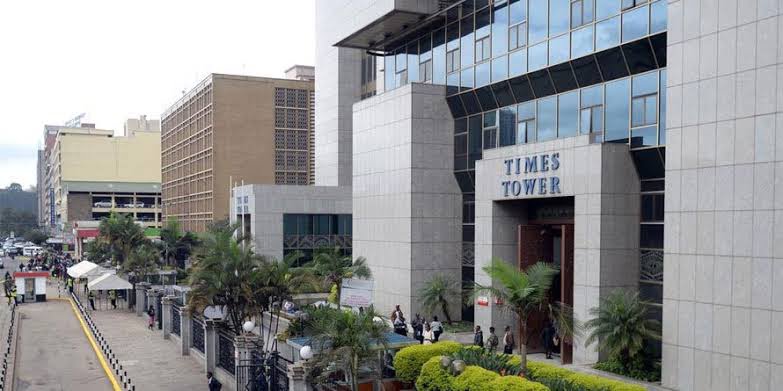Kenya Suspends All Gambling Advertisements: A Bold Step to Protect Vulnerable Populations
In a landmark move to address growing public concern over the rise in gambling addiction, the Betting Control and Licensing Board (BCLB) has announced a 30-day suspension on all forms of gambling advertisements in Kenya.
This directive, issued on April 29, 2025, applies to both licensed and unlicensed operators.

Therefore, this marks a significant shift in how Kenya approaches the regulation of the betting industry.
This action comes in response to increasing fears about the rapid proliferation of gambling activities.
And the misleading portrayal of betting as a legitimate investment opportunity and a shortcut to wealth creation.
The BCLB, through its Chairperson Dr. Jane Mwikali Makau, emphasized the adverse consequences of such misrepresentations on individuals, families, and the broader community.
What the Ban Covers
The comprehensive suspension affects all forms of advertising and promotional activities, including:
- Television and radio commercials
- Social media promotions and influencer marketing
- Outdoor advertising (billboards and posters)
- SMS and email campaigns
- Print media (newspapers and magazines)
The BCLB has emphasized that this directive is not just a pause, but a critical opportunity for both the government and betting firms.
So as to reassess how gambling is promoted and consumed in the country.
Why the Sudden Suspension?
The BCLB’s decision is rooted in mounting societal concerns, particularly the impact of gambling on minors and vulnerable populations.
The Board cited a sharp increase in gambling addiction cases, especially among youth, and noted aggressive marketing tactics.
Including influencer-led campaigns and primetime commercials, we’re contributing to a culture of normalized gambling.
A key concern highlighted by the BCLB is the prevalent airing of gambling advertisements during the watershed period, specifically between 5:00 am and 10:00 pm.

This unrestricted broadcasting exposes vulnerable members of the population, particularly minors, to gambling content.
Therefore, it raises serious concerns about the potential for addiction and its associated harms.
According to the BCLB’s official statement:
“There is an urgent need to regulate and sanitize the manner in which gambling advertisements are disseminated, particularly during the watershed period of 5:00 am to 10:00 pm, which exposes minors to gambling-related content.”
Mandatory KFCB Approval for Future Ads
To promote responsible advertising, the BCLB now requires that all future gambling advertisements be submitted to the Kenya Film Classification Board (KFCB) for review and approval before airing or publication.
This step ensures that:
- Ads are age-appropriate
- No misleading information is shared
- Gambling is not glamorized or portrayed as a quick way to wealth
This inter-agency collaboration aims to create a more robust regulatory framework around gambling, especially as digital platforms continue to evolve rapidly.
Formation of a Multi-Agency Taskforce
As part of the suspension rollout, a multi-agency enforcement team has been assembled.
This team includes representatives from:
- The Ministry of Interior and National Administration
- The Communications Authority of Kenya (CA)
- The Kenya Film Classification Board (KFCB)
- Civil society organizations
- Religious and parent groups
The taskforce will, over the next 30 days, review the current gambling ecosystem and submit recommendations for new policies, including:
- Advertising standards
- Youth protection measures
- Limits on gambling hours
- Digital marketing regulations
The BCLB has also urged the National Assembly to expedite the enactment of the Gambling Control Bill, which aims to provide the sector regulator with enhanced enforcement and supervisory powers.
Furthermore, the Media Council of Kenya (MCK) is called upon to finalize and operationalize new advertising guidelines.
In order to ensure effective regulation of gambling advertisements in the media landscape, following a court ruling that declared the previous programming code unconstitutional.
The Communications Authority of Kenya (CA) has also been requested to block and deactivate all foreign unlicensed gambling websites operating within Kenya.
Reactions from Stakeholders
Parents and educators have lauded the move as a necessary intervention, particularly in schools and lower-income communities where gambling has become pervasive.
On the other hand, betting companies have expressed concern over revenue losses and the short notice of implementation.
Some firms are already lobbying for dialogue with the government to create a balanced approach.
The Bigger Picture: Gambling in Kenya
Kenya has one of the highest rates of youth gambling in Africa, with studies showing that many young people place their first bet before the age of 18.
The ease of access through mobile platforms like M-Pesa has fueled this trend.
While the gambling industry contributes significantly to tax revenues, critics argue that the social cost, from school dropouts to family breakdowns, far outweighs its financial benefits.
What’s Next?
With the 30-day suspension now in effect, the spotlight is on the BCLB and its partners to chart a new path forward—one that balances economic interests with public health and social wellbeing.
The government has reiterated its unwavering commitment to safeguarding public welfare, protecting the youth, promoting social responsibility, and restoring integrity within Kenya’s gambling sector.
Consumers, especially parents, are encouraged to use this period to talk to their children about the risks of gambling.
While advertisers and influencers are being reminded of their ethical responsibilities.
All stakeholders, including betting companies, media houses, digital platforms, telecommunication service providers, and the general public, are called upon to fully comply with this directive in the national interest.
Conclusion
The suspension of gambling advertisements marks a bold and necessary move by the Kenyan government to regain control of a rapidly expanding and loosely regulated sector.
As stakeholders wait to see the long-term implications, one thing is clear: a new era of accountability and responsibility in gambling promotion is underway.
ALSO READ: Remembering Edward Kwach: The Voice That Shaped Kenyan Radio











































